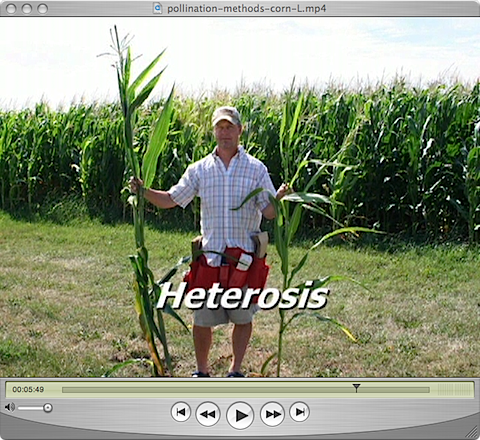- US to spend $2.25 million to find out whether preserving biodiversity could reduce disease. We say “what, no ag? Again?”
- Fancy a fig?
- Mud pot formulation brings unbelievable benefits.
- More small is beautiful: artisanal weed. Via.
- Meet the Tom-Anto.
Nibbles: Mongolia, Fruit & veg, Lima bean, Biofuels, Peyote, Permaculture, Extension
- Isgelen tarag. You heard me.
- Eat up all your vegetables, Timmy.
- Breeding a better Lima bean.
- Kenya will regret its failure to protect the environment. Wangari Maathai against (specific) biofuels.
- Lophophora williamsii showing classic signs of overexploitation.
- “I have been trying to be very friendly to soil worms…They are our friends.”
- Using radio soap operas in extension.
Psst! Wanna breed corn?
Karl J. Mogel from Inoculated Mind dropped us a note: “as part of my graduate school research, I’m making educational videos about plant breeding, and I just uploaded the first of them to my program’s website. Please consider linking to it in one of your blog posts.”
My pleasure!
So, off I went to the University of Wisconsin Madison’s web site to see. 1 I couldn’t actually see a video there, but no matter, there were instructions for how to deal with that problem, and pretty soon I found myself watching Karl’s effort.
It’s really good.
There’s lots of diversity on display and you’ll learn about much more than just pollination. I learned, for example, that nowadays the commercial production of hybrid corn seed uses a specialized detasselling tractor to cut the male flowers off the plants that are destined to grow the hybrid seed. There are genes that make the male flowers sterile, and they used to be used in almost all corn breeding, but Karl told us that although these male sterility genes are used in breeding other crops, they are “not as extensively used in maize”. He didn’t mention that the reason is that the widespread use of a single cytoplasmic male sterility gene was the underlying factor behind the dreadful epidemic of southern corn leaf blight that devastated maize growers in 1970 and 1971. All the corn had the CMS gene, which also conferred susceptibility to southern corn blight.
The other thing that wasn’t mentioned was that if you fancy doing a bit of corn breeding, even mass selection rather than specific hybrid crosses, you need to save seeds from around 100 plants each time, otherwise you end up with inbred seed that doesn’t do very well.
Go to it, and let us know how you get on.
Nibbles: Maize, Climate change, Erosion (not), Bees squared, Cordyceps, Apples, City gardens
- Maize origins investigated.
- Plants climb mountains.
- Rice endures, too.
- “How would our federal government respond if 1 out of every 3 cows was dying?“
- Bees in trouble in India too, but maybe not for same reason.
- We’ve blogged about 冬虫å¤è‰ before, but I personally can never get enough of the stuff.
- Apple breeding bears fruit in India.
- Videos of urban agriculture in Washington DC. Via.
Nibbles: Homegardens, Rice, Fish, Climate change, Value chains, Fuel costs, Urban drift
- Uganda: “Many youth are no longer idle. They grow vegetables and sell them.”
- Iran: “Rice is becoming a luxury for many of the poor, just like meat and chicken.”
- California: “In nearly every scenario we explored, biodiversity suffers...”
- Australia: “the Australian Fish Names Standard AS SSA 5300 which prescribes standard fish names approved for use in Australia.”
- Pretty much anywhere: “linking small-scale producers to modern markets.”
- Dept. of Silver Linings: “Fuel Costs May Force Some Kids To Walk.” Via.
- Tibet: “I’ve lived here long enough.” Via.
